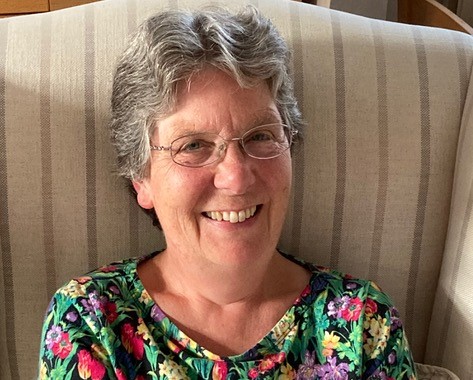November 2, 2022
SELTA at 40: Sarah Death
Sarah Death joined SELTA in the 1980s and edited Swedish Book Review for many years.
When did you join SELTA? What kinds of things were going on when you joined?
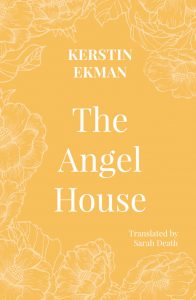 I joined SELTA a few years after its inception. Those were pre-Internet times and it was much harder to get hold of relevant information. Meetings made me feel like a tongue-tied newbie, but I appreciated the updates and visiting speakers, as well as the sense of community. The bi-annual newsletters were full of useful tips and briefings and the occasional embassy invitation to cultural and literary events felt like the icing on the cake. Established members would offer advice and occasionally pass on small jobs they could not fit into their schedules. Taken as a whole, these things helped to keep me ‘in the fold’ and gave me the impetus to go on translating even when getting a proper foot in the professional door continued to seem a distant prospect.
I joined SELTA a few years after its inception. Those were pre-Internet times and it was much harder to get hold of relevant information. Meetings made me feel like a tongue-tied newbie, but I appreciated the updates and visiting speakers, as well as the sense of community. The bi-annual newsletters were full of useful tips and briefings and the occasional embassy invitation to cultural and literary events felt like the icing on the cake. Established members would offer advice and occasionally pass on small jobs they could not fit into their schedules. Taken as a whole, these things helped to keep me ‘in the fold’ and gave me the impetus to go on translating even when getting a proper foot in the professional door continued to seem a distant prospect.
The support of the Swedish Arts Council and before them the Swedish Institute were very much valued, opening exciting doors such as visits to the Gothenburg Book Fair or even – a particular highlight for me – the chance to attend a workshop with a Swedish author and other translators of their work from around the world. In my case the author was Kerstin Ekman and the workshop had several iterations over a number of years.
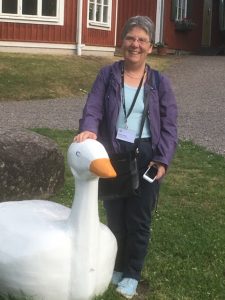 Did your career trajectory change? Is it different now compared with what you expected at the start?
Did your career trajectory change? Is it different now compared with what you expected at the start?
My career trajectory within SELTA felt to me like a slightly odd one. After a number of years as an inexperienced emerging translator, I was somehow suddenly deemed to be an experienced one; it felt as though there was no time in the middle for any kind of consolidation. This was mainly because of the relatively small number of active members in the association, I assume, but it was rather disorientating nonetheless.
What roles have you had within SELTA?
 I enjoyed my time as the reviews editor, deputy editor and later main editor of Swedish Book Review. Those were gigs that only very rarely brought in extra translation commissions for me personally, but they offered the chance to be at the hub of a network and be good touch with a range of translator colleagues and other contributors. Learning to be a good listener was at the heart of it. too; when you work with volunteers, keeping them on side is a vital part of the role. I felt rather like a cross between an agony aunt and a spider in the middle of an international web.
I enjoyed my time as the reviews editor, deputy editor and later main editor of Swedish Book Review. Those were gigs that only very rarely brought in extra translation commissions for me personally, but they offered the chance to be at the hub of a network and be good touch with a range of translator colleagues and other contributors. Learning to be a good listener was at the heart of it. too; when you work with volunteers, keeping them on side is a vital part of the role. I felt rather like a cross between an agony aunt and a spider in the middle of an international web.
In the core period of my editorship, 2003 to 2012, the SBR website was developing but the paper magazine still ruled supreme. The Swedish Arts Council handed out free copies from its stands at the Frankfurt and London book fairs. It was always a last-minute scramble to get the paper copies to Olympia or Earl’s Court on the eve of the LBF each spring.
How is the world of translation today different to when you started out? How has SELTA changed?
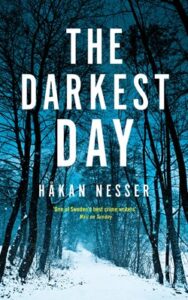 The world of translation today is a rather different one from the one when I first joined. A frankly rather niche translator group like SELTA is always going to be a slightly uneasy mix of mutual support and subterranean competitiveness. In those earlier days there was comparatively little work to be had but there is a great deal more work around now, for various reasons including the ubiquity of translation samples, the establishment and fast growth of the agent culture in the Nordic countries, and the explosion of interest in Scandi crime fiction and Nordic Noir.
The world of translation today is a rather different one from the one when I first joined. A frankly rather niche translator group like SELTA is always going to be a slightly uneasy mix of mutual support and subterranean competitiveness. In those earlier days there was comparatively little work to be had but there is a great deal more work around now, for various reasons including the ubiquity of translation samples, the establishment and fast growth of the agent culture in the Nordic countries, and the explosion of interest in Scandi crime fiction and Nordic Noir.
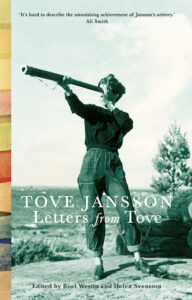 Hand-in-hand with this there has been a very welcome expansion of options to help and inspire emerging translators, be they informal online forums and social media groups, formal mentorships, or anything in between. Among crucial drivers I would include the Translators’ Association’s widening professional development programme and the birth of the Emerging Translators’ Network. ‘Literary’ translators in many genres have come to enjoy greater visibility in the world of books and publishing and the general mood is noticeably more collegial.
Hand-in-hand with this there has been a very welcome expansion of options to help and inspire emerging translators, be they informal online forums and social media groups, formal mentorships, or anything in between. Among crucial drivers I would include the Translators’ Association’s widening professional development programme and the birth of the Emerging Translators’ Network. ‘Literary’ translators in many genres have come to enjoy greater visibility in the world of books and publishing and the general mood is noticeably more collegial.
SELTA has continued to grow and has put effort into developing an attractive, website which members themselves can help to keep topical. The recent step of admitting members resident in North America has also brought in new energy and new voices.
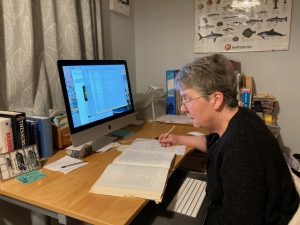
Photo credits: portrait and Sarah at work, John Death; photo with goose, Linda Schenck

